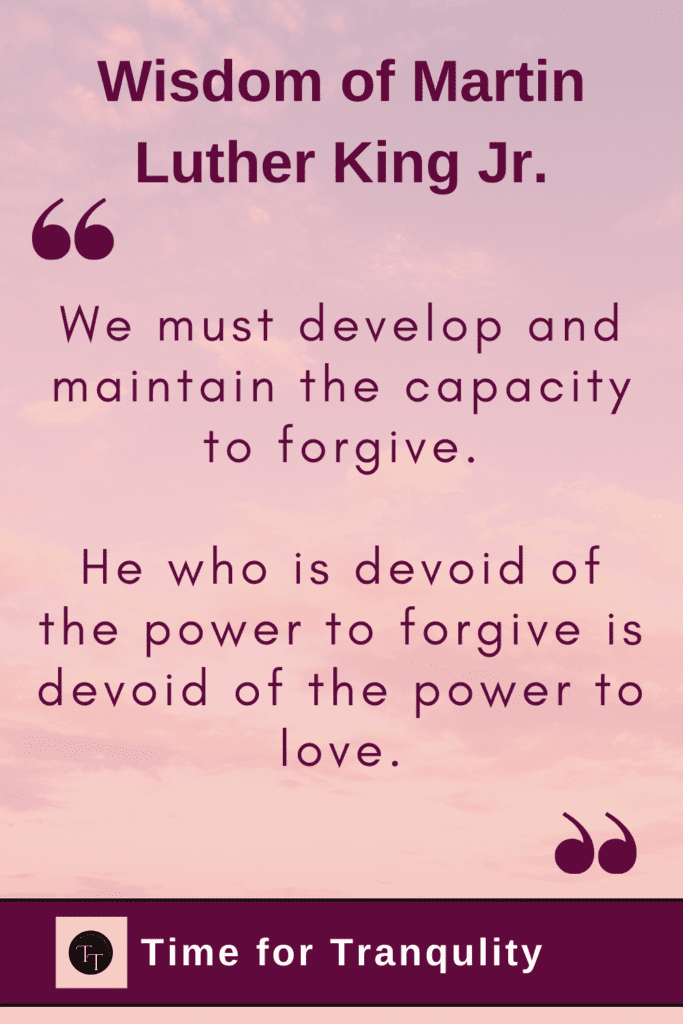4 Practical Ways to Manage Anger and Forgiveness in Senior Years!
Do you struggle with the emotions of anger and forgiveness? Frustration, loneliness, and unresolved conflicts from the past are often the root cause of anger in the later years of life.
Negative events and emotions usually stir up anger—whether at life’s unfairness, others who have hurt us, or even at ourselves for mistakes we regret.
Anger is a powerful emotion that’s hard to shake and often deepens with age as you have more accumulated baggage of unpleasant memories. Frustration at being unable to accomplish seemingly easy tasks or make others listen to you is another source of anger for the elderly.
Anger invariably leads to bitterness and misery. On the other hand, learning to manage anger and forgiveness can bring love, joy, and happiness back into your life.

Along with anger comes the potential for something even more transformative: forgiveness. Forgiveness allows you to release that burden, make peace with the past, and move forward with a lighter heart.
In this stage of life, you have a unique opportunity to explore how anger and forgiveness impact your emotional landscape. How can you transform anger into a path of peace and forgiveness?
This journey requires courage, mindfulness, and spiritual insight, but the reward is profound—a life of greater tranquility and inner freedom.
Understanding Anger and Using It for Spiritual Growth
Anger is a natural part of being human, an emotion we all experience at different points in our lives. As we age, however, it can often feel more pronounced.
Life’s disappointments, losses, and unhealed wounds may resurface, bringing with them frustration and resentment. These emotions can leave you feeling stuck and weighed down when all you truly seek is peace.
In Eastern spiritual traditions, anger is seen not as something inherently wrong, but as a signpost that points to deeper issues within ourselves.
Hinduism teaches that anger (krodha) is one of the six internal enemies of the soul. Anger clouds our judgment and incites us to speak or act in a manner that we may repent later. Similarly, in Buddhism, anger is considered one of the “Three Poisons” that obscure the mind and lead to suffering.
“The best fighter is never angry.” – Lao Tzu
But these ancient teachings also offer hope. Instead of being suppressed, anger must be acknowledged and understood. It can become a teacher, revealing unresolved pain or unmet expectations.
By examining your anger with compassion and curiosity, you can use it as a stepping stone toward self-awareness and emotional healing. Let anger not control you. Instead, acknowledge and use the emotion of anger to develop self-awareness and open the door to deeper spiritual growth.
The Role of Mindfulness in Managing Anger
Mindfulness is a powerful tool for managing anger. Mindful practices ground you to the present moment so that you can observe your emotion of anger without being consumed by it.
At its core, mindfulness is about awareness—being fully present and conscious of your thoughts, feelings, and sensations without judgment.
For many, anger arises automatically, like a reflex, leading you to react impulsively. However, mindfulness brings calmness to your mind. You can begin to recognize anger the moment it appears and create space between the emotion and your response.
For instance, the next time you feel anger rising, try this: pause, close your eyes, and take three deep, slow breaths. As you breathe, notice where the anger manifests in your body. Is it a tightness in your chest or a clenched jaw?
Without trying to change anything, just observe these sensations. By focusing on your breath and bodily sensations, you ground yourself in the present, creating a moment of calm between your anger and your actions.
Anger is a natural response to a situation you consider unjust or unwarranted. However, the suffering you cause to yourself by holding onto or fueling that anger is, often more painful than the initial hurt.
Mindfulness practice helps you recognize that while anger is inevitable, it doesn’t have to define or dictate your words or actions.
Forgiveness is a Strength That Frees You
Forgiveness is often misunderstood. Many believe that forgiving someone means excusing or forgetting the wrongs they’ve done to us. However, true forgiveness is not about erasing the past, it is a conscious choice to release the emotional burden that anger and resentment create within you.
In Hinduism, kshama (forgiveness) is considered one of the highest virtues. It is believed that by forgiving, we cultivate a state of grace, aligning ourselves with the divine qualities of patience and kindness. In Buddhism, forgiveness is a natural extension of karuna (compassion), which invites us to see the suffering in ourselves and others.
Forgiving someone, especially yourself, is one of the most challenging spiritual practices. It often requires deep reflection and inner strength. But the rewards of forgiveness are profound.
“The weak can never forgive. Forgiveness is the attribute of the strong.” – Mahatma Gandhi
The emotion of anger is a heavy emotional burden that weighs you down. But, counteracting anger with forgiveness lifts that burden. You will experience lightness, freedom, and immense inner peace.
Spiritual Practices to Manage Anger and Forgiveness
The emotion of anger is primal. The act of forgiveness is steeped in spirituality. Certain spiritual practices can help you develop the inner strength and mindfulness, needed to release anger and cultivate compassion.
Here are a few practical techniques you can incorporate into your everyday routine to help foster forgiveness.
1. Journaling for Forgiveness
Writing can be a deeply reflective and healing practice. Set aside time each day to write in a “forgiveness journal.”
Begin by acknowledging any anger or resentment you are holding. Explore the source of your emotions, and write about the person or situation that hurt you. Then, reflect on what forgiveness could look like in this context.
You can also write a letter of forgiveness, even if you never send them. Putting your feelings into words is a way of forgiving and letting go.
2. Gratitude Practice
Anger and resentment tend to focus our minds on what we lack or what went wrong. Cultivating gratitude helps shift this focus to the positive aspects of life.
Write down or speak out three things you are grateful for, each day. Make it a gratitude ritual, if you will. This simple practice rewires your brain to notice the good, helping to counterbalance the negative emotions tied to anger.
When you shift from anger to gratitude, forgiveness becomes a more natural and effortless process.
3. Breathing Techniques
Anger often manifests as tension in the body, and simple breathing exercises can help release this tension and calm the mind. A gentle pranayama (breathing) technique like Nadi Shodhana (Alternate Nostril Breathing) is particularly effective.
To practice this, sit comfortably, close your right nostril with your thumb, and inhale deeply through your left nostril. Close the left nostril with your ring finger, release the right nostril, and exhale through the right side. Then reverse the process.
This mindful breathing technique balances the nervous system, reduces stress, and helps create the emotional space needed to approach forgiveness.
4. Daily Meditation
Meditation is a powerful way to quiet the mind and cultivate a forgiving heart. A specific forgiveness meditation, like the Buddhist Metta Bhavana (Loving-Kindness Meditation), focuses on sending out feelings of love and goodwill, first to yourself, then to others, including those who have wronged you.
Start by finding a quiet place to sit comfortably, close your eyes, and take a few deep breaths. Silently repeat the following phrases:
May I be happy. May I be healthy. May I be peaceful.
Then extend these wishes to others, especially those with whom you have conflicts:
May you be happy. May you be healthy. May you be peaceful.
Over time, this meditation will dissipate anger and resentment, and be replaced with compassion and forgiveness.
In Conclusion
In conclusion, while anger and resentment are natural emotions, you can leverage spirituality to manage anger and forgiveness. Journaling, mindfulness, and meditation can help you be at peace with yourself.
Forgiveness is a gift we give ourselves—one that transforms anger into compassion and resentment into peace.
As you grow spiritually, you will discover that inner tranquility is not just possible, but a natural outcome of living with a forgiving heart.






